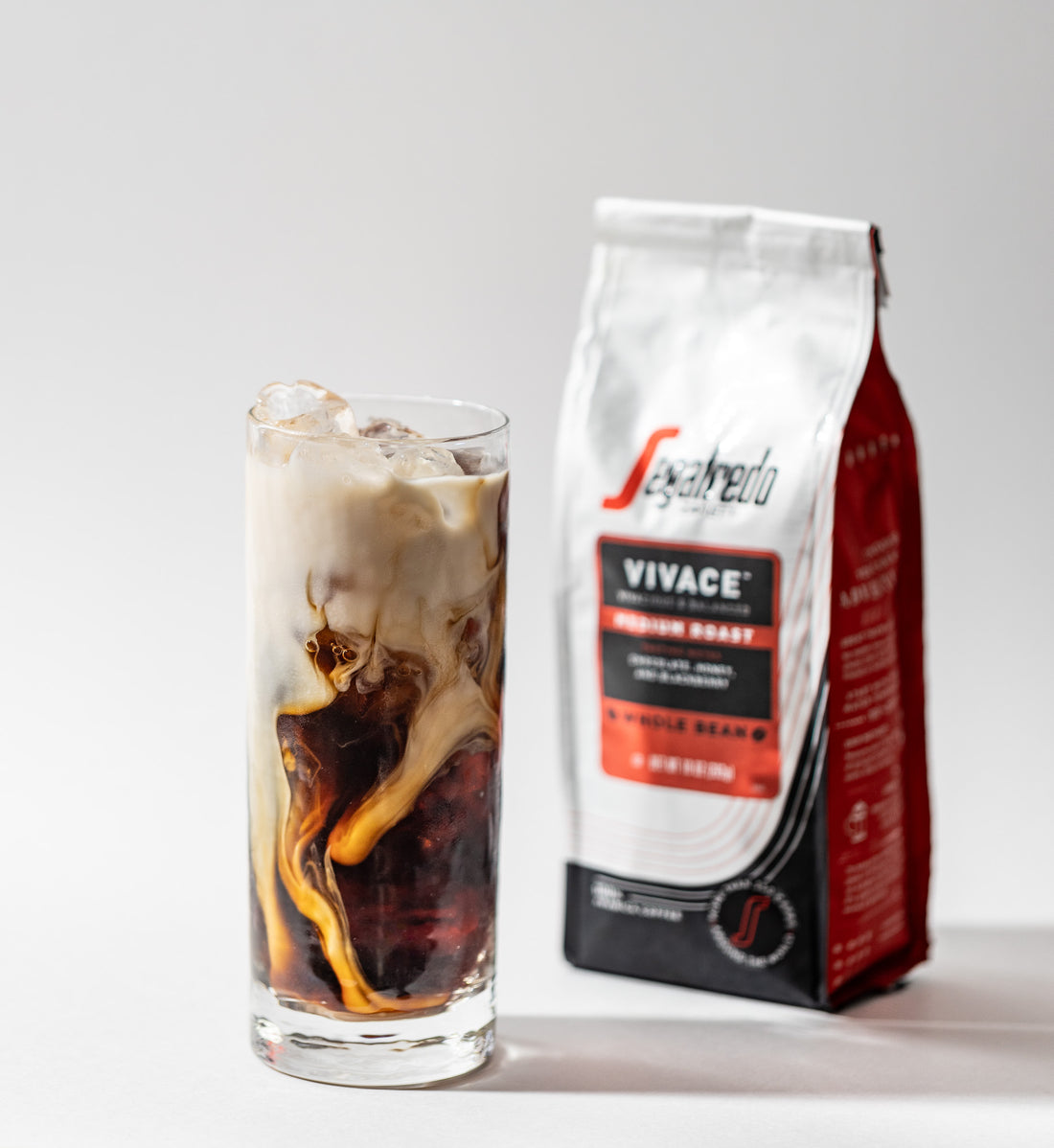
The Ultimate Guide to Healthy Coffee Additives
Share
Coffee is more than just a morning ritual. While many do enjoy their coffee black and without anything added, many of us like to add a little sweetener, flavor, or creaminess to make it more personalized to our individual tastes. Whatever your preference, you don’t have to sacrifice health for flavor. Here’s a guide to the best healthy coffee additives to elevate your cup of joe.

1. Natural Sweeteners
If you like your coffee on the sweeter side, you have additional options to refined sugar. Some healthier sweetener alternatives include:
- Honey: Packed with antioxidants and trace minerals, honey offers a natural sweetness with added health benefits.
- Maple Syrup: A rich, flavorful option that contains minerals like zinc and manganese and adds an extra “breakfasty” flavor to your coffee.
- Agave Syrup: Has a low glycemic index, meaning it causes a slower rise in blood sugar levels and it contains prebiotic fibers called agavins that promote gut health.
- Stevia: A plant-based, calorie-free sweetener that doesn’t spike blood sugar levels.

2. Milk Alternatives
Some like their coffee creamy. Dairy milk might not be an option for those who are lactose-intolerant, and others may have their own reasons to avoid it. If you want to ditch traditional dairy, try these nutrient-packed options:
- Almond Milk: Low in calories and adds a subtle nutty flavor. Almond milk is high in vitamin E and antioxidants, which can help improve heart health.
- Oat Milk: Creamy and slightly sweet, it’s a great source of fiber and B vitamins, and even has a bit of protein.
- Coconut Milk: Add a little tropical twist with coconut milk. It also contains medium-chain triglycerides (MCTs), which can increase HDL (good) cholesterol and improve lipid profiles.
- Soy Milk*: A protein-rich option that’s perfect for frothing. Soy milk is a good source of calcium and iron, which can help strengthen bones and reduce the risk of osteoporosis. It’s also the most eco-friendly milk option, because soybeans use less than a tenth of the water that almonds do, and the greenhouse gases produced by soy production are much less than dairy milk.
Something to note is that almost all milk alternatives come in sweetened, flavored, or unsweetened variations. If you’re looking to cut back on sugar, make sure you reach for the unsweetened option.
As always, check the labels before you buy to make sure you’re getting a milk that’s up to your standards for ingredients and nutrition.
*It’s worth noting that soy milk got a bad rap when it first started gaining popularity. Before you completely rule it out, check out some of the research on it and decide for yourself if it’s worth trying.
3. Spices
Some people might be looking for healthier alternatives to their beloved flavored syrups at their favorite coffeeshops, to cut back on extra ingredients and calories. Adding spices to your coffee can enhance its flavor and provide health benefits, without the sugar:
- Cinnamon: A warm, sweet spice that may help regulate blood sugar.
- Nutmeg: Adds depth and warmth to your coffee.
- Cardamom: Known for its aromatic flavor and digestive benefits.
- Pumpkin Spice: You can still enjoy a “pumpkin spice latte” without having to go for the calorie-filled syrups. Add this normal baking spice blend to your coffee with your sweetener alternative of choice for a lower calorie option.
- Turmeric: With anti-inflammatory properties, turmeric pairs well with black pepper for better absorption. If this interests you, check out some recipes for Golden Milk Lattes, a nutritious drink that tastes great, too.
4. Healthy Fats
Using healthy fats in your coffee can provide sustained energy and enhance mental clarity. Here are a couple to choose from:
- Coconut Oil or MCT Oil: Both are rich in medium-chain triglycerides that the body can use quickly for energy.
- Grass-Fed Butter: Popular in “bulletproof coffee,” this additive adds creaminess and beneficial fatty acids.
5. Functional Boosts
There are a lot of powders and supplements on the market that may be beneficial to incorporate into your dietary program, and you can use your coffee to add them to your daily routine. You can turn your coffee into a superfood with these health-boosting options:
- Collagen Powder: Supports skin, hair, nails, and joint health.
- Protein Powder: Makes your coffee a protein-packed morning meal.
- Adaptogens (e.g., Ashwagandha, Reishi): May help with stress management and energy balance.
7. Natural Flavorings
Interested in a culinary approach to your beverages? Turn things up by incorporating floral, herb, or citrus ingredients. For a gourmet flair to your morning beverage, try these simple, natural ingredients:
- Lemon or Orange Zest: Adds a citrusy brightness.
- Lavender: Provides a calming floral note.
- Rosemary: A personal favorite of ours, particularly when incorporated with a touch of sea salt, agave, and almond milk for a savory latte.
Tips for Incorporation
- Start Small: Begin with a small amount of any additive to ensure the flavor doesn’t overpower your coffee.
- Mix Well: Use a frother or blender to fully incorporate fats, powders, or thicker ingredients.
- Experiment: Try combining additives, such as cinnamon and honey, for a unique flavor profile.
Dial In Your Favorite Coffee Additives
Coffee can be so much more than a caffeine fix. By adding healthy, natural ingredients, you can create a delicious, nutrient-rich beverage that supports your wellness goals. Whether you’re seeking a sweet treat, a creamy texture, or a functional boost, these healthy additives can help you make the perfect cup every time.
